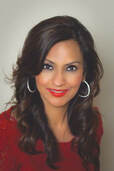 Olivia Muñoz is an Oakland-based writer and educator whose work has appeared in the Association of Mexican American Educators Journal and other publications. She worked as a journalist for The Associated Press, The Detroit News, and other news organizations. Olivia is working on her first book. Aire |








 RSS Feed
RSS Feed